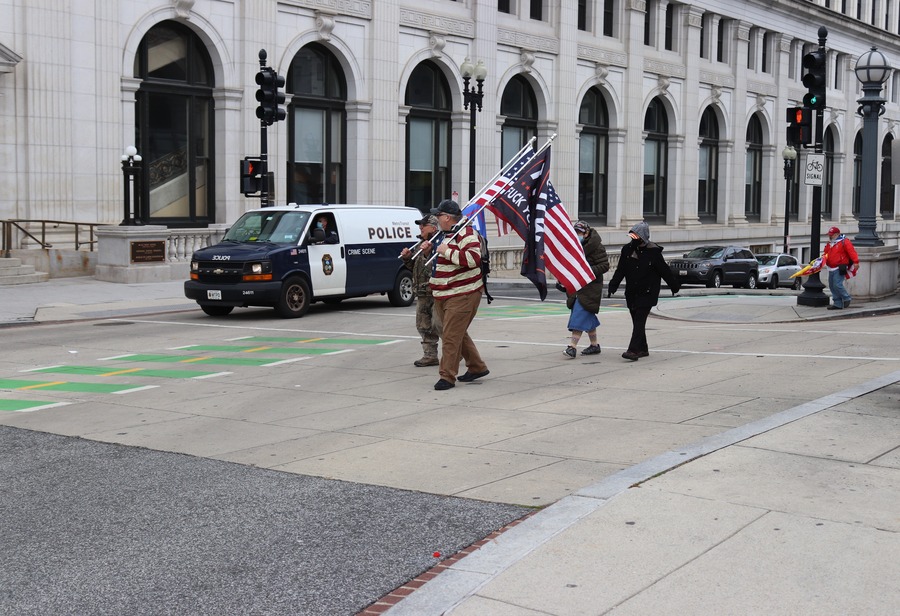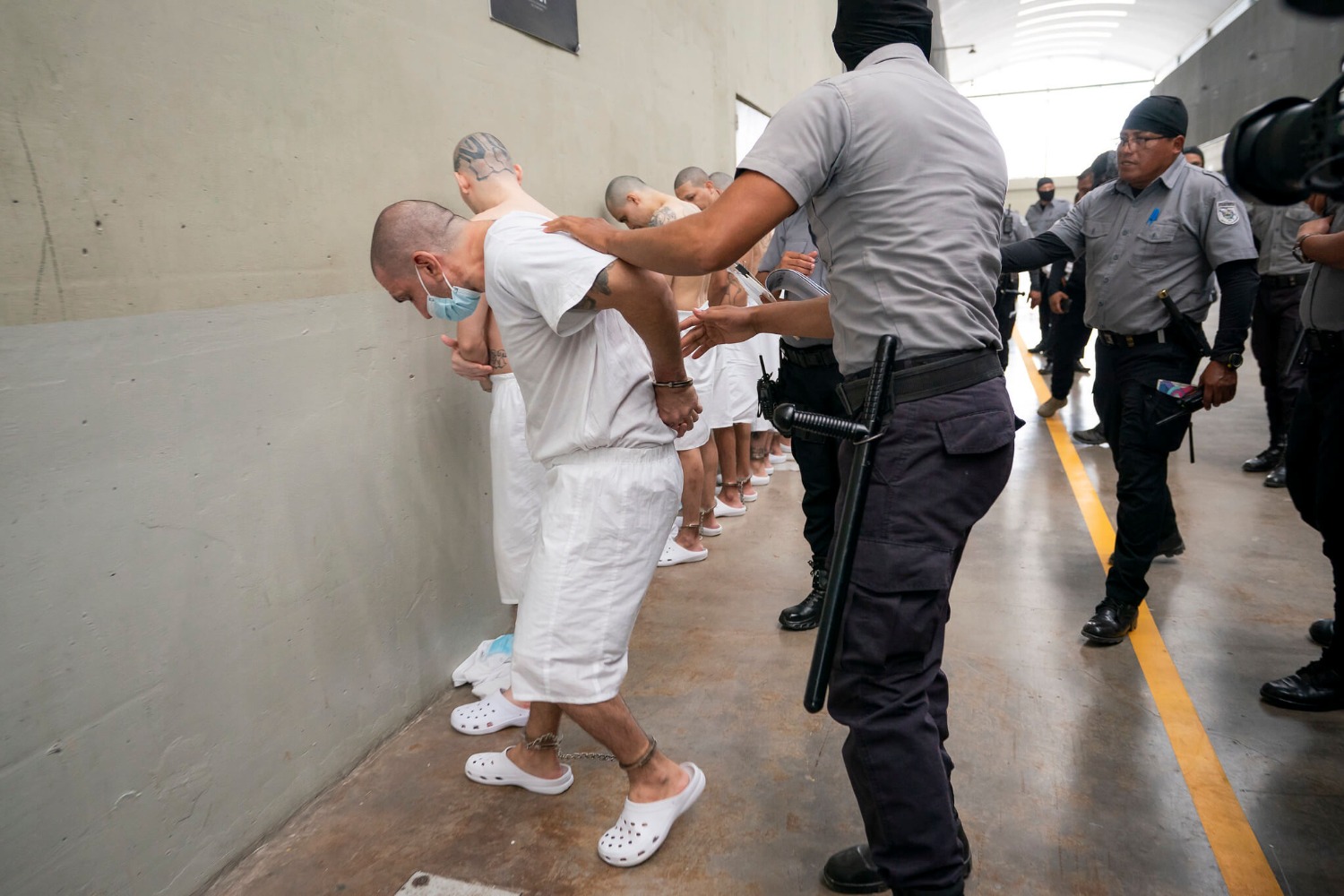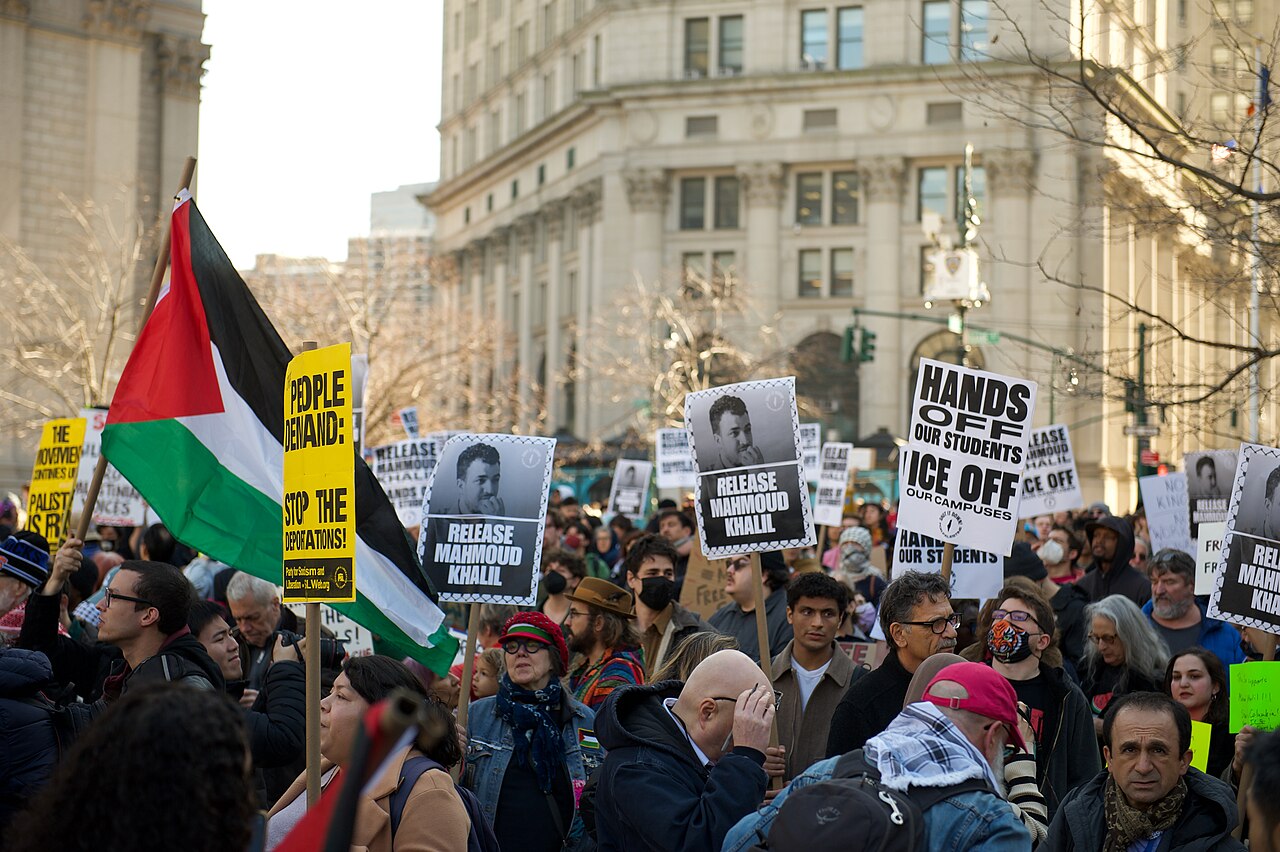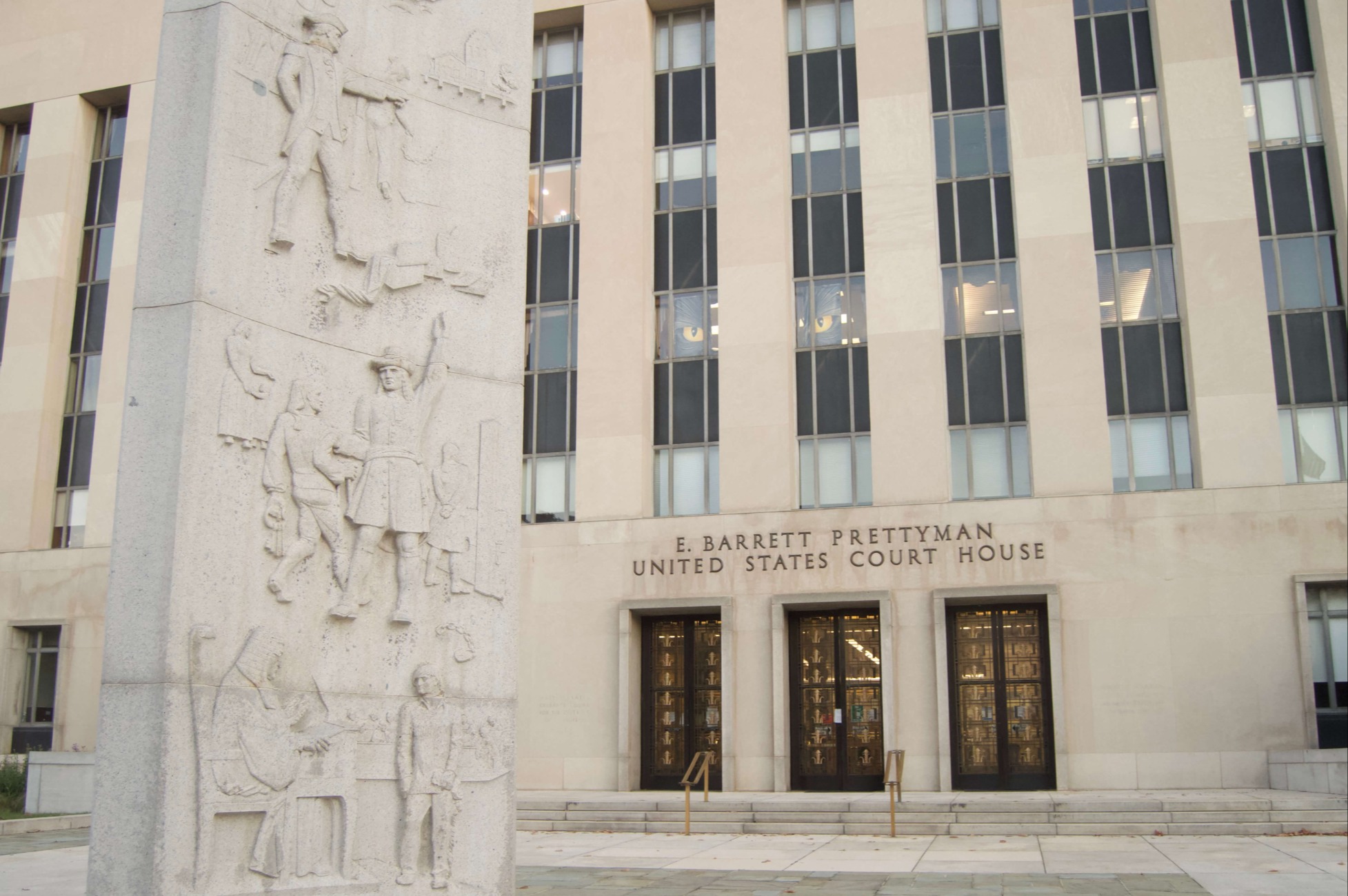The Justice Department’s New Approach to “Despite-Fischer” Cases

Published by The Lawfare Institute
in Cooperation With

There’s a new development in the U.S. Department of Justice’s approach to what might be referred to as the “despite-Fischer cases.” These are the cases in which the government has elected to pursue an accused Jan. 6, 2021, rioter on a charge of corrupt obstruction of an official proceeding, notwithstanding the U.S. Supreme Court’s recent ruling in Fischer v. United States, greatly narrowing the scope of that statute.
The apparent new approach surfaced on Sept. 18, when federal prosecutors filed a superseding indictment against Jan. 6 defendant Stephanie Baez. They dropped a charge that had previously been leveled against her under 18 U.S.C. § 1512(c)(2) and replaced it with a charge alleging violation of § 1512(c)—the entire section—which encompasses subsections (c)(1) and (c)(2). As explained below, this appears to make sense, though it also appears to be the first time the maneuver has been used in any Jan. 6 case.
The change is also of obvious potential significance to the prosecution of former President Donald Trump in Washington, D.C. Two of the four counts in that indictment allege obstruction of an official proceeding, under 18 U.S.C. § 1512(c)(2), and conspiring to do so, under 18 U.S.C. § 1512(k). Whether Special Counsel Jack Smith will eventually file a second superseding indictment in Trump’s case, making analogous modifications, remains to be seen.
In a direct message, Randall Eliason, a former federal prosecutor in Washington, D.C., and now an adjunct professor at George Washington University Law School, says he sees no legal issues arising from the new approach:
In general, it’s not a problem to charge a statute without specifying which subsection—or, to put it more accurately, to charge all subsections as alternative ways to violate the statute. It made sense to charge [subsection (c)(2)] when it appeared to have a broader meaning independent of [subsection (c)(1)], but now that rationale is gone so charging [and] arguing both gives the government the most options. Seems to make sense to me and I don’t see any legal problems.
Let’s take a step back and recall the backdrop to this maneuver. The 18 U.S.C. 1512(c) statute, remember, has two subsections:
(c) Whoever corruptly—shall be fined under this title or imprisoned not more than 20 years, or both.
- alters, destroys, mutilates, or conceals a record, document, or other object, or attempts to do so, with the intent to impair the object’s integrity or availability for use in an official proceeding; or
- otherwise obstructs, influences, or impedes any official proceeding, or attempts to do so,
Subsection 1512(c)(1) is narrow, and its meaning has never been challenged seriously. For instance, Trump’s indictment in the Southern District of Florida included—fairly uncontroversially—two counts of 1512(c)(1), as well as a charge of conspiracy that included accusations relating to that subsection.
In count 35 of that indictment, for example, the special counsel’s office alleged that Trump violated 1512c(1) by hiding classified documents from his attorney, reportedly Evan Corcoran, so that Corcoran wouldn’t produce them to the grand jury.
Similarly, in count 41 of that indictment, special counsel alleged that Trump violated 1512c(1) by having asked Employee 4, reportedly Yuscil Taveras, to delete security camera footage the grand jury had subpoenaed.
But 18 U.S.C. 1512(c)’s broad, catchall second subsection, (c)(2), did become controversial. The Justice Department leveled the charge against at least 355 Jan. 6 defendants before the Fischer ruling. Prosecutors had assumed that its broad language included corrupt obstructions of a proceeding—in this case, the joint session of Congress on Jan. 6—by means of mob action and violence. At least fifteen U.S. district judges in D.C. agreed.
On June 28, however, a 6-3 majority of the U.S. Supreme Court found that the word “otherwise” in 1512(c)(2) required that that subsection be read in light of 1512(c)(1), producing a much narrower reading. The per curiam decision—which, according to a recent New York Times article, was written by Chief Justice John Roberts, Jr.—held that subsection (c)(2) only reaches defendants who, as in 1512(c)(1), try to “impair[] the availability or integrity for use in an official proceeding of records, documents, ... or ... other things used in the proceeding.”
In a concurrence, however, Justice Ketanji Brown Jackson suggested that many of the Jan. 6 cases might be able to go forward even under the narrowed definition, depending on precisely what the government could prove in a given case:
That official proceeding [i.e., the joint session] plainly used certain records, documents, or objects—including, among others, those relating to the electoral votes themselves. … And it might well be that Fischer’s conduct, as alleged here, involved the impairment (or the attempted impairment) of the availability or integrity of things used during the January 6 proceeding “in ways other than those specified in (c)(1).” … If so, then Fischer’s prosecution under §1512(c)(2) can, and should, proceed.
Indeed, the per curiam justices in Fischer—while not opining on Jackson’s view—refrained from reversing outright and, instead, remanded for further proceedings in the lower courts consistent with its ruling, leaving open the possibility that Justice Jackson was right.
Since Fischer, the Justice Department has said it is reviewing on a case-by-case basis the 259 Jan. 6 prosecutions in which an 18 U.S.C. § 1512(c)(2) charge was still pending at the time Fischer was decided. As of Sept. 5, it said that it had elected to abandon at least 100 such charges but was pressing forward in at least 13 cases under the narrowed definition.
The cases in which the department has elected to go forward appear to be those in which there is evidence that the defendants knew they were obstructing the availability of documents that were needed for the certification proceeding that day. For instance, prosecutors are pursuing some defendants who made it to the Senate floor and saw rioters discussing and rummaging through papers on senators’ desks, and other defendants whose social media posts evinced understanding that Electoral College ballots were to be opened and counted that day.
There was still one hurdle, though. Often, when prosecutors charge a defendant in an indictment—unless it’s a so-called “speaking indictment”—they simply recite the statutory text of the alleged crime with only a bare-bones elaboration of how the defendant violated it. But recitation of the text of 1512(c)(2) gives no clue as to the particular meaning the per curiam court has now given it. Indeed, Justice Amy Coney Barrett, in her dissenting opinion in that case, was withering in her description of the contortions she felt the majority had gone through to rewrite the statute:
The Court does not dispute that Congress’s joint session qualifies as an “official proceeding”; that rioters delayed the proceeding; or even that Fischer’s alleged conduct (which includes trespassing and a physical confrontation with law enforcement) was part of a successful effort to forcibly halt the certification of the election results. Given these premises, the case that Fischer can be tried for “obstructing, influencing, or impeding an official proceeding” seems open and shut. So why does the Court hold otherwise?
Because it simply cannot believe that Congress meant what it said. Section 1512(c)(2) is a very broad provision, and admittedly, events like Jan. 6 were not its target. (Who could blame Congress for that failure of imagination?) But statutes often go further than the problem that inspired them, and under the rules of statutory interpretation, we stick to the text anyway. The Court, abandoning that approach, does textual backflips to find some way—any way—to narrow the reach of subsection (c)(2).
Be that as it may, on Sept. 18, in its prosecution of Jan. 6 defendant Stephanie Baez, the Justice Department filed a third superseding indictment that replaced a 1512(c)(2) charge with a 1512(c) charge that did not specify either subsection. Instead, the new version recited the statutory language of both subsections (c)(1) and (c)(2). (The government claims Baez’s social media posts show in-depth understanding of the role that records and documents would play in the certification process she allegedly sought to obstruct.)
A few days later, the department explained in a separate filing, opposing Baez’s motion to dismiss that count, that the appropriate jury instruction should incorporate language from both subsections:
First, the defendant committed or attempted to commit an act that:
- altered, destroyed, mutilated, or concealed a record, document, or other thing to be used in an official proceeding; or
- otherwise impaired the integrity of or rendered unavailable such thing;
Second, the defendant intended to:
- alter, destroy, mutilate, or conceal a record, document, or other thing; or
- otherwise impair the integrity of or render such thing unavailable for use in an official proceeding; and
Third, the defendant acted corruptly.
Since the Supreme Court found that the word “otherwise” in subsection (c)(2) cannot be understood without reading the words in subsection (c)(1), the department’s approach and instruction appears to make sense.
It’s early, though, of course. We will have to see how this approach holds up once defendants begin challenging it, juries begin pondering it, and judges and appellate judges begin reviewing any convictions that might result.





